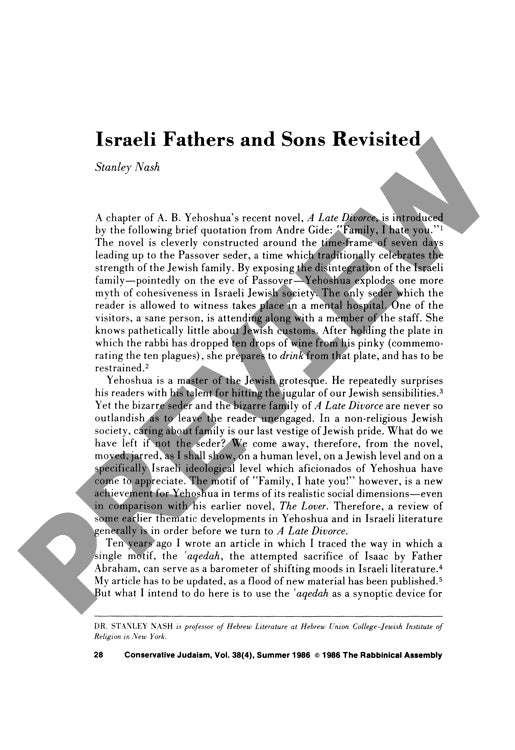Israeli Fathers and Sons Revisited
Couldn't load pickup availability
The binding of Isaac ('aqedah) serves as a powerful lens for understanding generational conflict in Israeli society, evolving from a narrative of heroic sacrifice to one of outright rebellion against patriarchal authority. Through close examination of works by A.B. Yehoshua, Amos Oz, and Ya'aqov Shabtai, three distinct phases emerge in Israeli literature's treatment of father-son relationships: the 1948 generation's acceptance of sacrifice, the late 1950s' protest against ideological control, and contemporary narratives where sons symbolically eliminate fathers. Using comparative analysis of novels, short stories, and visual art, the research reveals how the 'aqedah functions as a national symbol reflecting psychological tensions between Zionist founding fathers and their descendants. Yehoshua's A Late Divorce emerges as the culmination of familial rejection, employing sexual dysfunction and family pathology to mirror broader societal discord. Contemporary Israeli writers leverage the reverse 'aqedah to critique both Diaspora Jewish neuroses and failed Canaanite ideologies, though they diverge in their solutions: Yehoshua advocates separation from Diaspora influences, while Oz proposes reclaiming Jewish intellectual traditions. This persistent literary preoccupation with patriarchal conflict ultimately reflects deeper anxieties about Israeli national identity and the tension between indigenous Hebrew culture and Jewish historical consciousness.

More Information
-
Physical Description
-
Publication Information
Published 1986
ISBN
-
Publication Credits
Stanley Nash

